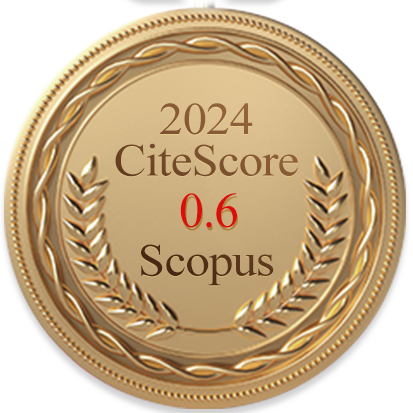Aims
Journal of Research, Innovation and Technologies (JoRIT) is an international peer-reviewed open-access journal dedicated to advancing the theory and practice of innovation and technology-driven transformation. The journal serves as a platform for high-quality research that examines how emerging technologies, digital solutions, and strategic innovation reshape organisational capabilities, industrial development, and societal progress.
JoRIT aims to foster interdisciplinary scholarship connecting technological advancement, innovation management, and policy studies to address contemporary socio-technical challenges. The journal welcomes conceptual, empirical, and applied studies that explore innovation processes, technology adoption, digital transformation strategies, and the socio-economic implications of technological change.
Through its commitment to bridging scientific inquiry with real-world impact, JoRIT promotes rigorous research that informs strategic decision-making, governance practices, and sustainable development goals. The journal particularly values contributions that generate practical frameworks, innovation models, and technology-enabled solutions supporting inclusive growth and responsible progress.
Key features of JoRIT include:
A strong emphasis on innovation-focused research and technology-driven transformation spanning multiple disciplines;
A focus on how emerging technologies influence organisational performance, policy development, and societal well-being;
Encouragement of interdisciplinary studies bridging innovation strategy, digital technologies, sustainability, and human-centred perspectives;
Promotion of insights that translate innovation theories and digital capabilities into measurable, real-world value;
A commitment to rigorous peer-review standards, research integrity, and responsible dissemination of knowledge.
Scope
JoRIT embraces a comprehensive scope, welcoming contributions that explore the synergy between research, innovation, and technological advancement across disciplines and sectors. Areas of interest include, but are not limited to:
Innovation in Products, Services, and Processes: Research on the development and implementation of novel ideas, products, systems, or workflows that lead to substantial improvements across industries and sectors.
Knowledge Creation and Enhancement: Studies on the planning, execution, and optimisation of activities aimed at generating new knowledge or improving existing solutions, technologies, and services.
Technological Evolution and Societal Impact: Examination of how technological advancements shape industries, economic systems, cultural patterns, and social structures, including risks, opportunities, and long-term transformations.
Technology and Innovation Management: Exploration of strategies and methods for managing technological change and fostering innovation in organisational settings, including leadership, planning, and decision-making.
Digital Technologies and Platforms: Research focused on the application, integration, and implications of digital tools such as cloud computing, blockchain, Internet of Things (IoT), big data, and smart systems across diverse sectors.
Open Innovation and Collaborative Transformation: Investigations into collaborative innovation models, co-creation practices, crowdsourcing, and knowledge sharing frameworks that support agile transformation in the digital era.
Technological Solutions for Societal Challenges: Studies addressing social, environmental, or economic challenges through innovative technologies or frameworks that enhance well-being, inclusion, and resilience.
Intellectual Property and Legal Frameworks: Analysis of legal, ethical, and regulatory aspects of innovation, including intellectual property rights, patents, trademarks, copyright, digital governance, and data privacy.
Government Policy and Public Innovation Strategy: Research evaluating the role and effectiveness of government interventions, public innovation programs, and national policy strategies that support technology development and deployment.
Organisational Innovation and Leadership: Examinations of innovation-related practices within organisations, including business model innovation, digital transformation of operations, strategic management, and adaptive leadership.
Business Technology and Operational Efficiency: Studies on how emerging technologies are applied to improve business communication, productivity, workflow automation, and customer engagement.
Analytical Methods and Optimisation Models: Use of quantitative, mathematical, and simulation-based models to solve complex decision-making problems and optimise operational systems in research and industrial contexts.
Research Methodologies and Data Science: Investigations into methodological approaches for data collection, processing, and interpretation, including both quantitative (numerical) and qualitative (descriptive) frameworks.
Financial Technology and Digital Finance: Exploration of digital financial systems, including innovations in fintech, blockchain-based finance, algorithmic trading, and modern strategies for financial risk and asset management.
Innovation in Education and Training Systems: Research on how innovation and technology reshape learning systems, curriculum development, digital pedagogy, and knowledge transfer in higher education and vocational contexts.
Entrepreneurship and Innovation Ecosystems: Studies on startup dynamics, innovation networks, incubator and accelerator models, entrepreneurial finance, and the broader ecosystem that supports idea-to-impact pathways.
JoRIT provides a scholarly space for academics, industry professionals, and policymakers to engage with contemporary issues at the intersection of research, innovation, and technological transformation.







